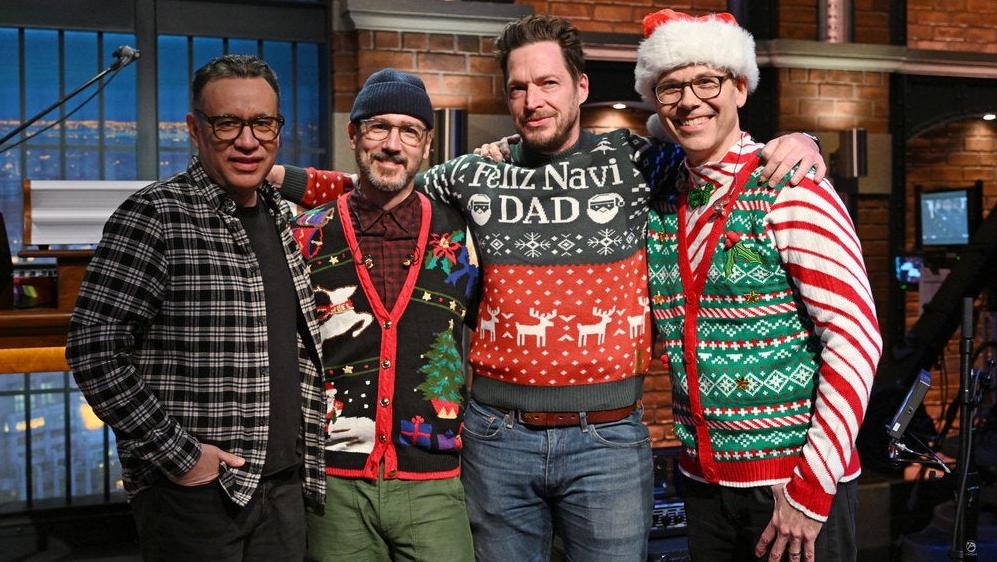The 8G Band took over for The Roots when Seth Meyers assumed the Late Night desk from outgoing host Jimmy Fallon. Fronted by Meyers’ old SNL buddy Fred Armisen, the band would see its famous guitarist entering and exiting the group over the next 12 years as Janney, guitarist Seth Jabour, and bassist Syd Butler dutifully played walk-on music over for the host’s guests daily. 8G differentiated itself from previous late-night bands by welcoming guest drummers to fill in for Armisen in his absence. Season 11 of the show will be the last with a consistent house band, but Janney indicates it’s “possible” they could occasionally return when Armisen is in town.
In the meantime, 8G will continue to make music for the show, pre-recording tracks for Late Night producers to play on air. However, we suppose that means we’ll hear fewer specific stings, like the teases to the James Bond theme when Pierce Brosnan is on, and even fewer special guest drummers. Before they leave, Janney hopes to “try all kinds of things,” such as “having some of our favorite drummers from the guest-drummers program” back. They even expect to have Armisen back for the last week of shows.
But, as Janey recognizes, this is part of a more significant, sadder move towards flattening our culture, particularly surrounding the value of music. Walk-on music may seem like a minor bit of dynamism to make a special guest’s appearance pop, but these things keep live audiences engaged and excited and are the type of added value that doesn’t necessarily find its way to the balance sheet. Since its inception, late-night talk shows have been home to live bands because they are inexpensive, practical add-ons to any variety show. Please, for but a minute, try imagining a version of The Tonight Show With Jay Leno without Kevin Eubanks. Doesn’t that sound awful? Of course, when there are stockholders to please and a streaming service to sell, paying for music is the last thing Comcast wants.
“It’s also just a sad day for Late Night, because it’s been going for over 40 years now. But, sadly, it’s the reality of broadcast and a shrinking market — streaming eating into this, and YouTube eating into that,” Janney said. “Streaming is not making money, either. So budgets everywhere have been cut and cut and cut. I liken it to a Spotify moment in music, where suddenly it’s like, Nobody wants to pay for music. Music gets devalued.”

 Keep scrolling for more great stories.
Keep scrolling for more great stories.
